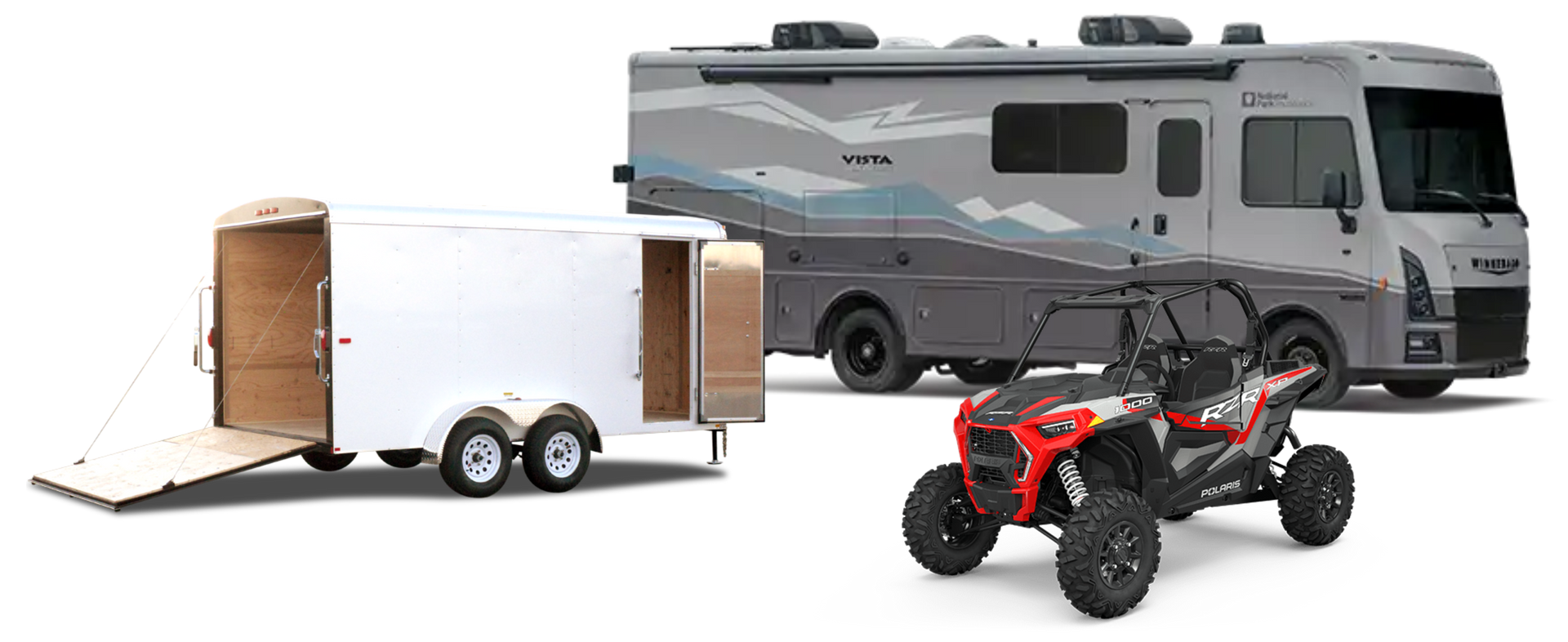Unlock
exclusive financing options and start your power sport journey today.
as seen on

Pontoon Boat Ownership Guide: Tips, Tricks, and Maintenance
1. Introduction to Pontoon Boats
Pontoon boats are an excellent option for recreational boating, offering a stable, versatile platform for family outings, water sports, fishing, and relaxing. If you’re considering purchasing one, this guide will walk you through everything from buying tips to maintaining your pontoon for years of enjoyment.
2. Buying a Pontoon Boat: What to Look For
- Size and Capacity: Pontoons range in size from compact 16-foot models to larger 30-footers. Choose based on your intended usage—smaller models are easier to maneuver, while larger ones can accommodate more passengers and gear.
- Engine Power: For casual cruising, a 60–100 hp engine is sufficient, while you might want a 150+ hp engine for water sports or faster speeds.
- Material and Construction: Aluminum is the most common pontoon material, known for its durability and lightweight. Look for reinforced corners and heavy-duty cross beams for added stability.
- Features: Consider whether you need features like bimini tops, swim platforms, fishing stations, or built-in coolers depending on your activities.
3. Maintenance Tips for Pontoon Boats
Regular maintenance will ensure your pontoon stays in top shape and avoids costly repairs. Here's a breakdown of key maintenance tasks:
- Engine:
- Flush the engine with fresh water after each use (especially in saltwater).
- Check and change the oil every 50-100 hours of operation.
- Inspect spark plugs annually and replace as needed.
- Pontoon Tubes:
- Inspect for leaks or dents and repair promptly.
- Clean the exterior with mild soap to prevent algae and grime build-up.
- Electrical System:
- Check the battery connections regularly and keep the battery charged.
- Inspect navigation lights and other electrical components for proper functioning.
- Upholstery:
- Clean seats and fabric with UV protectant to prevent cracking or fading.
- Store the boat with a cover or in a dry space when not in use.
4. Maintenance Schedule
Weekly
- Clean the exterior and upholstery.
- Check fuel and oil levels.
Monthly
- Inspect the engine for any visible issues.
- Check the battery and electrical connections.
Annually
- Perform a full engine service (oil, filters, spark plugs).
- Inspect pontoon tubes and repair any damage.
- Replace the water pump impeller and thermostat every 2-3 years.
5. Common Problems and How to Prevent Them
- Corrosion: Saltwater can cause corrosion on aluminum pontoons. Rinse the boat thoroughly with fresh water after each saltwater trip and apply a corrosion-resistant spray.
- Fuel System Issues: Ethanol-blended fuels can cause damage to marine engines. Use ethanol-free fuel or add fuel stabilizers to prevent problems.
- Leaks in Tubes: Over time, punctures or cracks can occur in pontoon tubes. Regularly inspect the tubes for leaks and repair them immediately to prevent sinking.
- Electrical Malfunctions: Moisture can lead to corroded connections. Ensure that electrical components are sealed properly, and keep connectors clean and dry.
6. Cost of Pontoon Boat Ownership
Here’s a breakdown of common costs associated with pontoon boat ownership:
- Initial Purchase:
- New pontoon boats range from $25,000 to $60,000+ depending on size, engine, and features.
- Used pontoon boats typically cost between $10,000 and $30,000.
- Fuel:
- Expect to spend around $20–$50 per outing, depending on the engine size and activity.
- Insurance:
- Pontoon boat insurance generally costs between $200 and $500 annually.
- Maintenance:
- Routine maintenance, including oil changes and cleaning supplies, will cost between $200 and $500 per year.
- Winterization services (if you store the boat in cold climates) cost around $300–$600.
- Storage:
- Indoor storage costs range from $50–$300 per month, depending on location and facility.
7. Tips and Tricks for Pontoon Boat Owners
- Docking Made Easy: Pontoon boats can be tricky to dock due to their size. Practice slow-speed maneuvers and always dock into the wind or current for better control.
- Watch the Weight: Pontoon boats are stable, but overloading them can cause slower speeds and higher fuel consumption. Keep an eye on the weight limit, including passengers and gear.
- Propeller Care: The propeller can get dinged up in shallow water or during docking. Inspect it regularly and replace it if it’s damaged to maintain smooth operation.
- Bimini Top Use: Use your bimini top to provide shade on sunny days but remember to retract it when cruising at high speeds to avoid damage.
8. Conclusion: Enjoy the Water with Confidence
Owning a pontoon boat is a rewarding experience, offering versatility for various water activities. By following a regular maintenance schedule, being aware of potential issues, and keeping costs in check, you can enjoy years of hassle-free boating. Dealerhop Powersports is here to help you find the perfect pontoon for your adventures!
Unlock
exclusive financing options and start your power sport journey today.
as seen on




